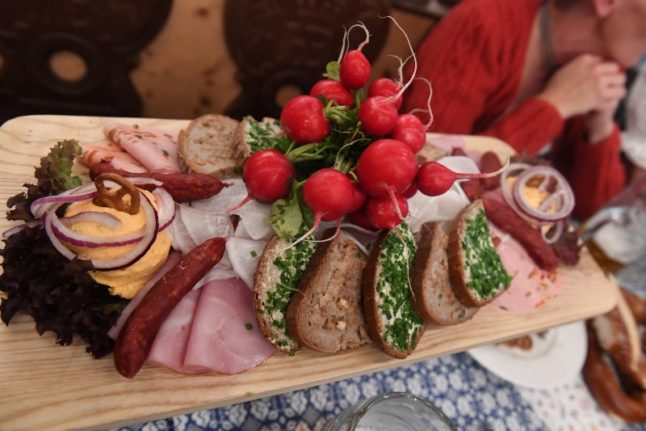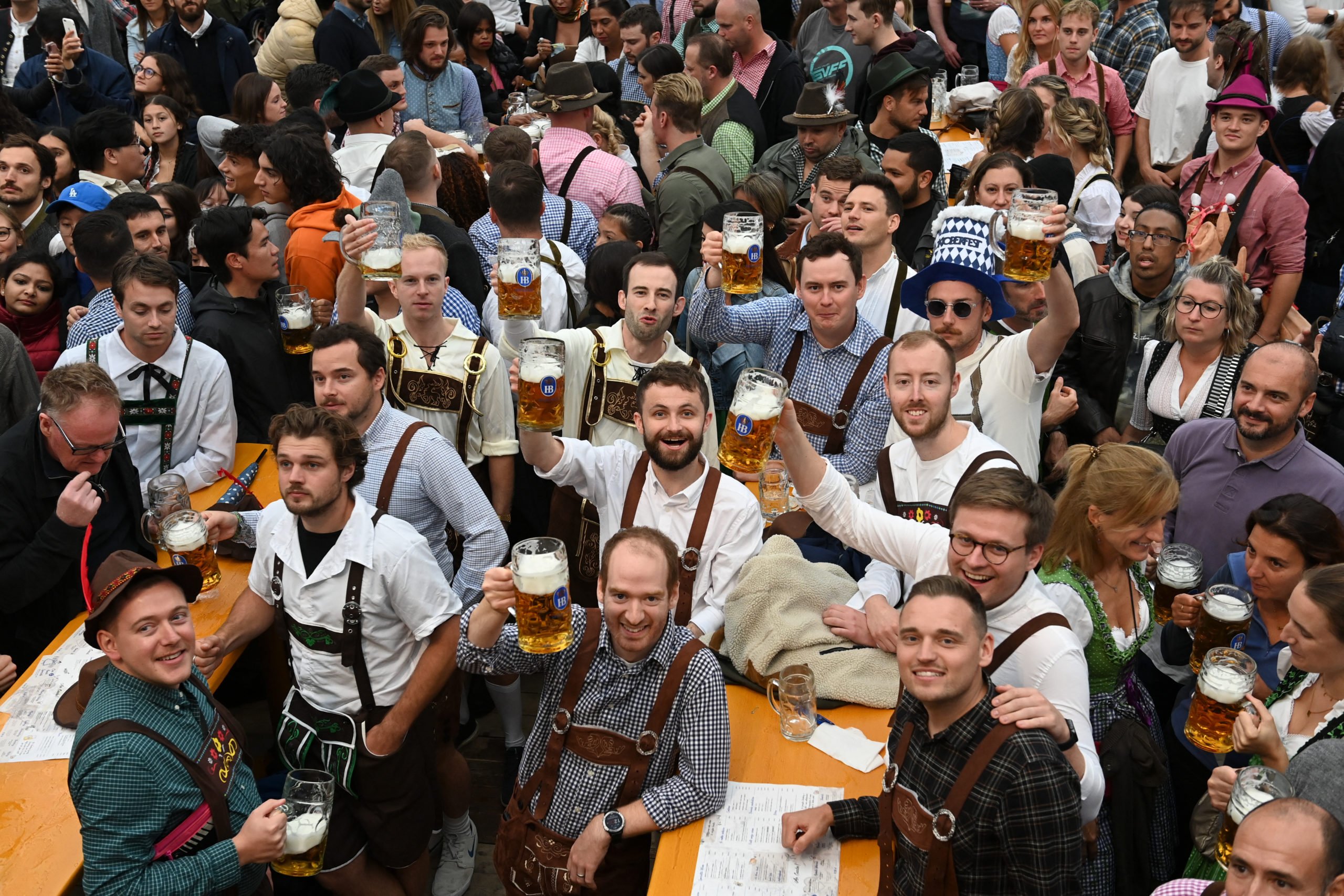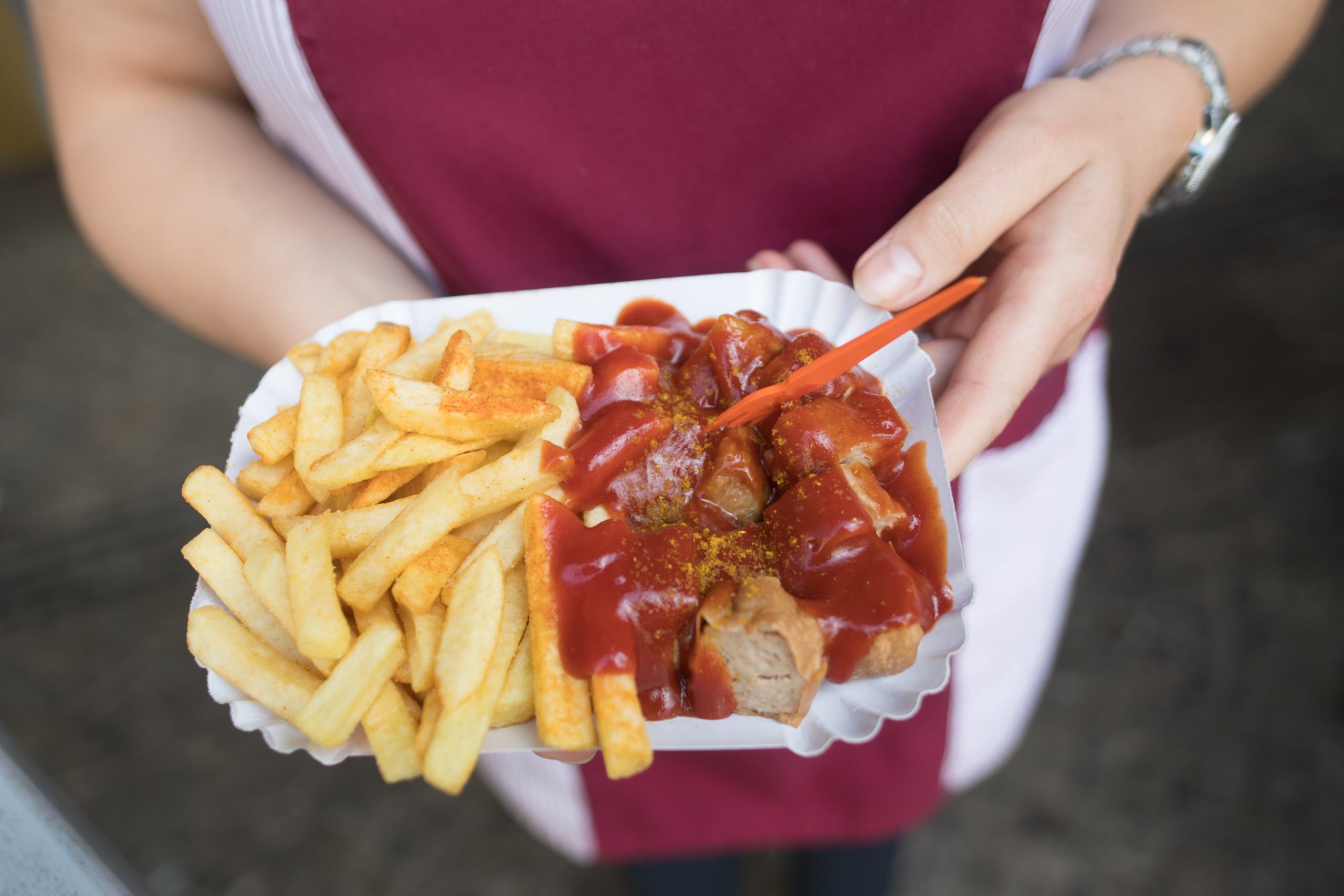This spring-themed tart, celebrates white asparagus season, requires few ingredients and is super easy to throw together. It is perfect for entertaining, especially if you are short on time.
White asparagus has a milder flavor than the green, so alternating the varieties in this tart presents a mellower flavor, a perfect contrast to the sharpness of the Swiss cheese.
Fun food fact: Did you know fresh asparagus squeaks when it’s rubbed together?
SEE ALSO: German word of the day: Spargelzeit
Easy white and green asparagus tart
Prep time: 20 minutes
Cook time: 20 minutes
Servings. 6
Recipe by Lora Wiley-Lennartz
Ingredients:
1/2 kilo green asparagus
1/2 kilo white asparagus
2 sheets puff pastry
2 tablespoons quark
2 tablespoons fresh thyme leaves
100g shredded Swiss cheese
Instructions:
 Photo: Lora Wiley-Lennartz
Photo: Lora Wiley-Lennartz
– Bring a large pot of salted water to a boil.
– Trim the stems off the asparagus
– Peel the white asparagus
– Boil all the asparagus for 10 minutes drain well and set aside.
– Preheat oven to 190 degrees C
– While the asparagus is boiling roll out or pat the puff pastry sheets into an 8″ x 12″ rectangle.
– Brush the quark on top and sprinkle with the thyme leaves.
– Lay the asparagus on top and sprinkle the shredded Swiss cheese evenly over the top.
– Place in the oven and bake for 20 minutes.
– Remove, let cool for 10 minutes before slicing and serving.
Lora Wiley-Lennartz is an Emmy nominated television producer and a food/destination blogger who splits her time between Germany and New York City. Read her blog Diary of a Mad Hausfrau or follow her on Facebook for traditional German recipes with a twist.





 Please whitelist us to continue reading.
Please whitelist us to continue reading.
Member comments